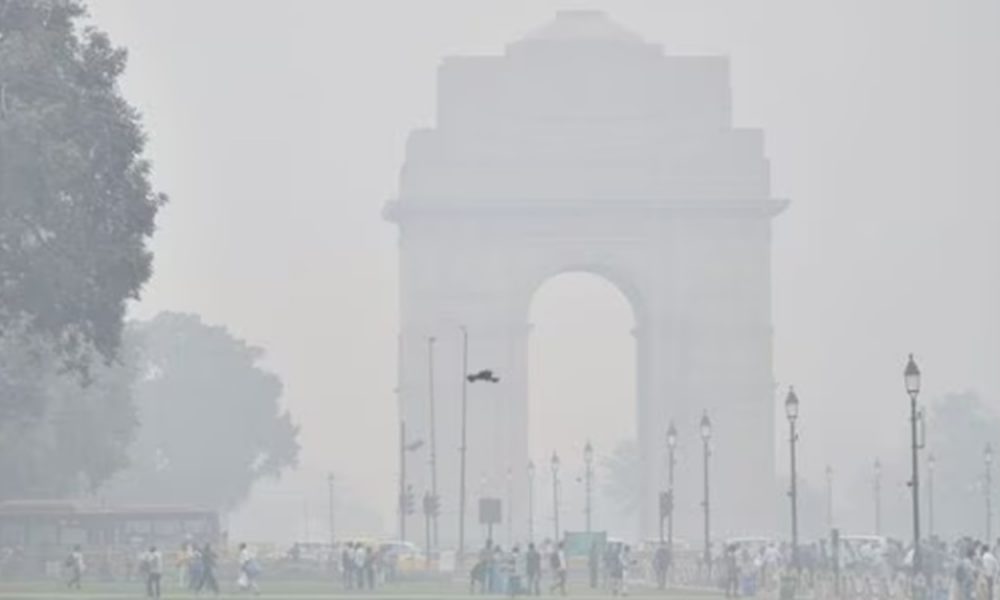
New Delhi: The Air Quality Index (AQI) remains in the ‘Very Poor’ category in parts of Delhi, as per the Central Pollution Control Board (CPCB).
Delhi’s air quality remains in very poor category
Read @ANI Story | https://t.co/eDycadGld3#Delhi #AQI #AirQuality #pollution pic.twitter.com/SeYnsRxDCQ
— ANI Digital (@ani_digital) December 9, 2023
Visuals from the area around Akshardham, shot at 6:55 am showed smog engulfing the city.
The air quality in the national capital was recorded in the ‘very poor’ category on Friday. As per the Central Pollution Control Board, the overall Air Quality Index (AQI) at Anand Vihar, Delhi, stood at 374 on Friday morning.
Earlier on Thursday, the air quality in the national capital continued to remain in ‘poor’ category. The overall Air Quality Index (AQI) of Delhi, as per SAFAR-India (System of Air Quality and Weather Forecasting and Research), was recorded at 276 on Thursday morning.
The India Meteorological Department (IMD) has predicted no rainfall in the National Capital till December 11. There will be clear skies with shallow to moderate fog in the morning across the city. Delhi has been experiencing air quality in the range of ‘severe’ to ‘very poor’ over the last few weeks.
Congress MP Jairam Ramesh hit out at Union Minister Bhupender Yadav saying that he gave a “gol mol” reply to pointed questions on public health and air pollution inside Parliament.
The Congress MP was referring to the reply he received from the Union Minister during Question Hour on ‘air pollution in NCR and the country’ in Rajya Sabha on the fourth day of the ongoing Winter Session.
Jairam Ramesh asked a question about whether the Centre was considering a review of the Pollution Control Act that was passed in 1981 and the National Ambient Air Quality Standards.
To this Union Environment Minister Bhupender Yadav said, “In view of the problem of air pollution in the country, a provision of Rs 19,711 crore was made by the Central government. And to define the standards that were set, 131 cities in the country were also identified. Schemes were implemented by the central government to identify these cities, all provisions were made keeping in mind the toxic emissions that spread in the air, especially PM 2.5 and PM 10. And I would like to say that the standards which were made in these 131 cities, progress was made quite satisfactorily.”
“Rather, I would like to tell Jairam Ramesh that the municipalities that did good work and contributed in these 131 cities were also given awards in a positive manner. Because this topic is related to the lives of all of us, and especially the local municipalities, we should participate in it as much as possible, and those who have done good work should be specially compensated,” he added.
The air quality index from 0 to 100 is considered ‘good’, 100 to 200 ‘moderate’, 200 to 300 ‘poor’, 300 to 400 ‘very poor’ and from 400 to 500 or above ‘severe’.




